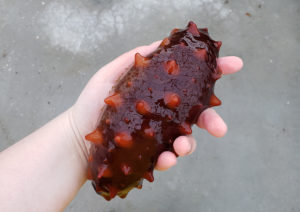
A fresh focus on sea cucumbers – nature’s recyclers
Researchers in Scotland, Sweden and Canada are exploring the potential of sea cucumbers, the squishy detritivores that can help clean up behind fish pens.
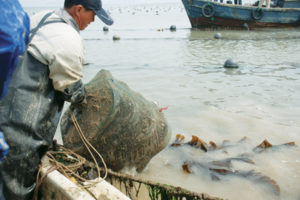
Sea cucumbers enhance IMTA system with abalone, kelp in China
In the authors’ recent study, sea cucumbers were added directly to abalone cages with no modifications of the culture equipment to form a simple, low-cost IMTA production system.
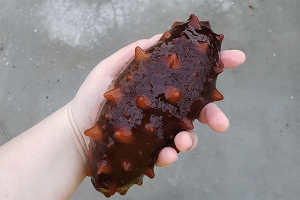
Cool stuff: Sea cucumbers can keep fish farms clean, research finds
University of Stirling research finds sea cucumbers can flourish by feeding on organic fish farm waste and subsequently be a high-value product.
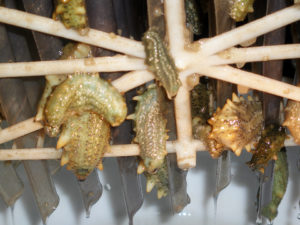
Probiotics improve nursery performance of juvenile sea cucumbers
While sea cucumbers are one of the most prized seafoods in China and Asia, their production suffers from suboptimal juvenile production. The use of proper feeds and overall management in the nursery can improve yield and survival.

Stress susceptibility of echinoderms under aquaculture conditions
If an animal is stressed, its immune function decreases, and vulnerability to diseases increases. Since there is currently no effective treatment for disease in echinoderms, the authors examined the impacts of handling and salinity fluctuations on the immune functions of sea cucumbers and sea urchins.
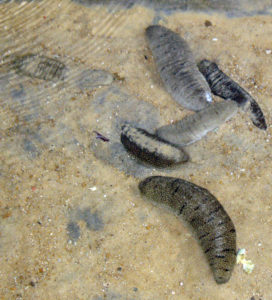
Sandfish, profitable sea cucumbers, also supply bioremediation
Sandfish, a high-value sea cucumber, supports the aquaculture of other fish species by cleaning up waste on the bottoms of ponds or sea cages.
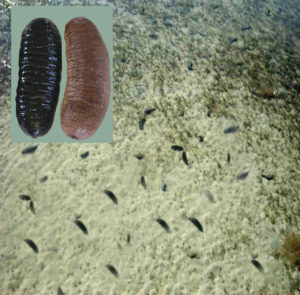
Tropical sea cucumber culture
Advances in the culture of sea cucumber species are countering the overexploitation of wild populations. Protocols for intensive hatchery production are well established, and juvenile production efficiency has improved.
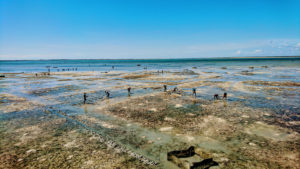
Sea cucumber project redefining traditional farming in Madagascar
Farming sea cucumbers – known as sea slugs in China – is changing people’s lives, giving rural workers in Madagascar a potential pathway out of poverty.
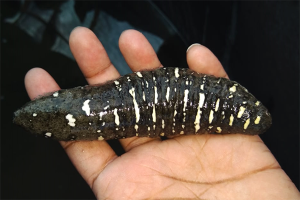
Genomic audit to inform fishery and conservation management of the Fijian sandfish
Reporting key insights into the genetic structure and connectivity of Fijian sandfish but more research is needed for conservation and management.
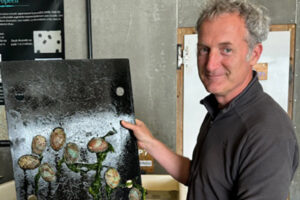
Abalone, against all odds: How one French shellfish producer learned to survive
France Haliotis illustrates how determination can make the difference between survival and success in abalone aquaculture.
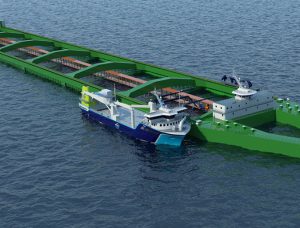
Chem-free fixes emerging in sea lice saga
Salmon farmers, using emerging technologies, are exploring new methods of sea lice mitigation in an effort to overcome one of the industry’s most persistent problems. New chemical-free innovations show an industry eager to adapt and adopt environmentally safe practices.
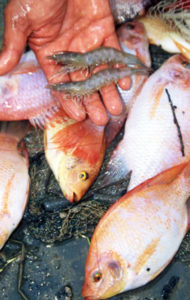
Polyculture: Varied applications, benefits spark renewed interest
Polyculture production boosts fish and/or shellfish biomass and harvests by maximizing the different feeding habits and habitat preferences of varied culture species.
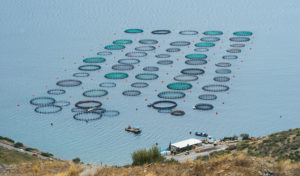
Evaluating passive acoustic telemetry to monitor gilthead sea bream juveniles
An evaluation of passive acoustic telemetry techniques as a tool to monitor welfare of gilthead sea bream juveniles implanted with acoustic transmitters.
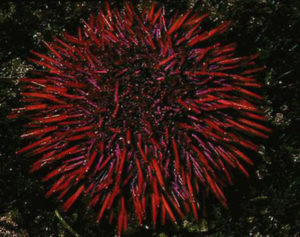
Sea urchin aquaculture: From laboratory to production
The gonads of male and female sea urchins is considered a delicacy. A strong market value for quality uni make urchins an excellent aquaculture candidate.
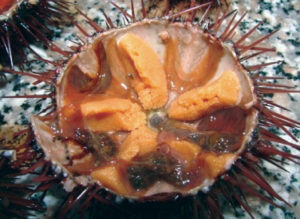
Aquaculture could enhance Mediterranean Sea urchin fishery
Although researchers in several countries are working to enhance sea urchin fisheries or commercial production, the development of a major commercial industry has been restrained by the lack of cost-effective production technology.
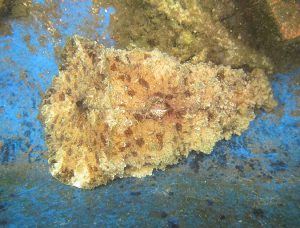
The odd wedge sea hare is useful as an ‘algae cleaner’
Marine gastropod molluscs known as sea hares are relatively unknown animals that have significant importance in biomedical research due to their particular nervous system. And because of their ability to consume large amounts of algae, they can be very useful in clearwater, marine aquaculture systems.
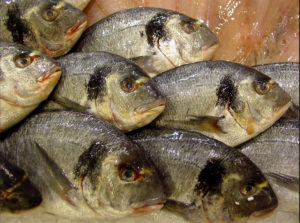
Combined effects of nutritional, biochemical, environmental stimuli on gilthead sea bream
Study evaluates effects of holding temperature and low fish oil diets with dietary genistein on several production parameters for gilthead sea bream.
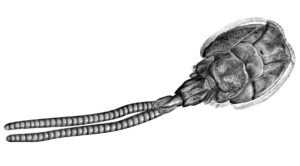
Animal health giants have sea lice in their crosshairs
Alltech and Benchmark have been working on the next generation of sea lice solutions and believe they have new products that can help salmon farmers win.
